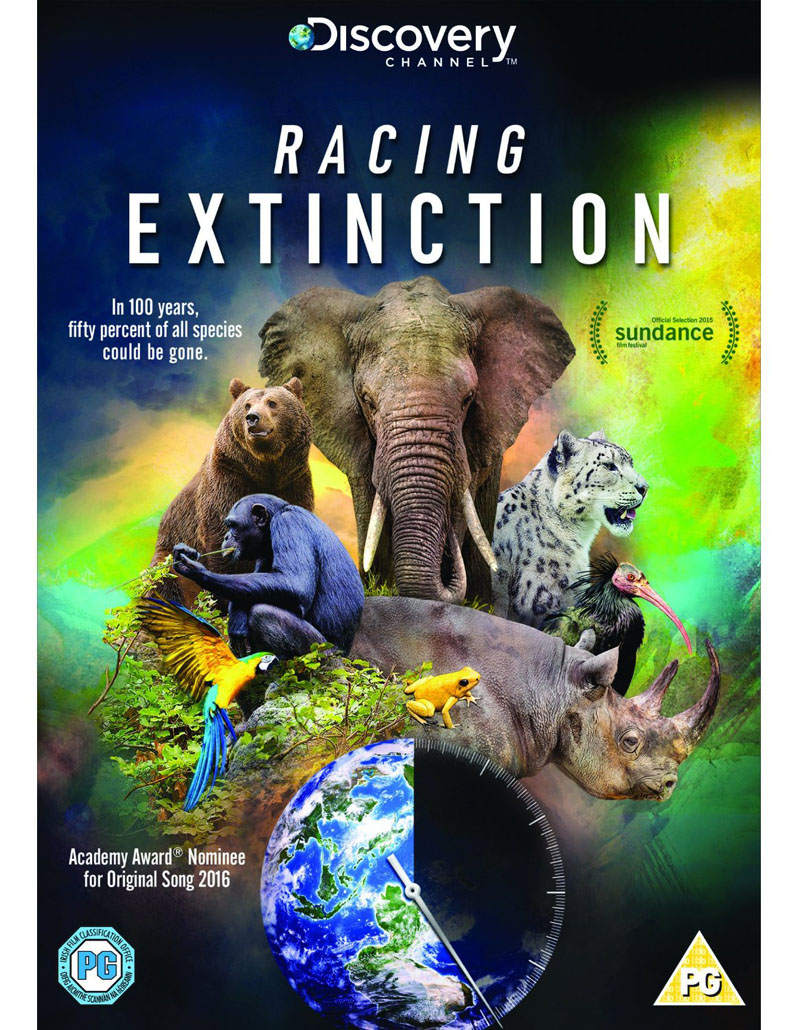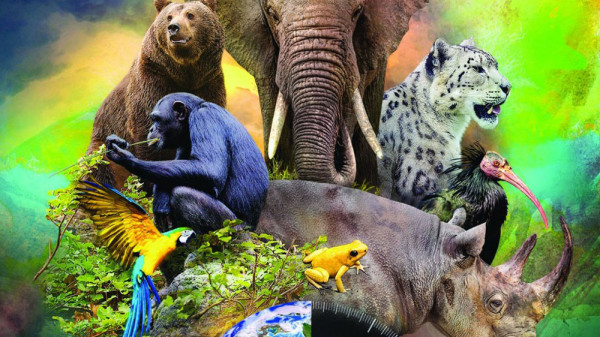From the Academy Award®-winning filmmakers of The Cove, Discovery Channel’s acclaimed eco documentary Racing Extinction is out now on DVD.
Using state-of-the-art technology and covert tactics, Racing Extinction follows a team of activists working to expose the ways in which many of the planet’s species’ populations are threatened, from endangered species trafficking to environmental damage.
However, there is plenty of hope in the fight against extinction, and here are a few things you can do to help…
Reduce your carbon footprint
Climate change is having a massive detrimental impact on many wildlife populations, but if we all take a few small steps to keep our carbon footprint down, we can make a huge positive change. It doesn’t have to mean a major lifestyle overhaul; rather, perhaps consider whether you can walk to the supermarket rather than driving, switch the thermostat down a degree or two, take public transit, and be sure to switch the lights off when you leave the room.
You probably won’t notice a massive impact on your lifestyle, but if we all make a few adjustments, the impact can be huge. Plus, you might notice you’ve saved on your electricity bill too, so it’s a win-win.
Choose sustainable seafood
Some species of fish and other marine life are put at risk by overfishing or by unfriendly fishing practices. The good news, however, is that there are plenty of delicious and plentiful sustainably sourced species to choose from.
If in doubt, look for the MCS’ sustainable fish logo in supermarkets, ask your fishmonger, or consult the Good Fish Guide for a comprehensive list of seafood choices.
Plant a bee-friendly garden
Bees and other pollinating insects are crucial to helping our ecosystem continue to thrive. Their relationship with the plants and flowers they pollinate is what allows many plant species to continue to produce seeds or bear fruit. Without bees to provide this essential service, many plant populations may struggle in turn.
Many factors are contributing to a decline in pollinator populations, but an abundance of bee-friendly gardens can help keep our bees healthy and happy. You can easily put together a beautiful flowerbed or planter of bee favourite plants and flowers, and some species, like thyme, marjoram, and lavender, also double as herbs for cooking, which will save you a few quid the next time you decide to do a roast chicken – just remember not to use pesticide sprays on your plants!
The Royal Horticultural Society has put together a helpful list of bee-friendly plants here.
Vote for the environment
If you’re concerned about what the government is doing to aid in fighting against extinction, be sure to research candidates’ views on the environment come election time.
Vote for candidates who are committed to more sustainable agricultural, environmental, and economic policies, and support organisations locally or globally who are actively working to help keep vulnerable wildlife populations thriving.
Eat locally
A lot of us don’t know much about where the food we eat comes from, and unfortunately, some of it may be produced in ways that are harmful to local wildlife. Not only does buying locally-grown produce reduce your carbon footprint, but local, smaller farms tend to be more environmentally-friendly, and often grow a more diverse range of crop varietals and animal breeds than make it to supermarket shelves.
Check supermarket labels to see where produce was grown, or visit your local farmer’s market – you may find yourself saving money on some lovely fruit and veg to boot.
Racing Extinction is out now on DVD from Sony Pictures Home Entertainment.
> Buy Racing Extinction on DVD on Amazon.

What else can you do to help? Let us know below…

